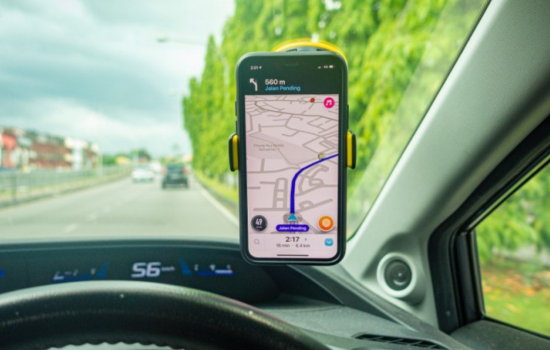Advertisements
In times of digital espionage, it is essential to adopt security measures to protect our personal data and guarantee our online privacy.
The digitalization of the modern world has brought many conveniences, but it has also increased risks. Unfortunately, many people still underestimate digital threats and fail to take the necessary precautions to protect their sensitive information.
The increasing collection of personal data by companies, the popularization of connected devices and the increase in cyberattacks make strengthening our security practices even more crucial.
We are increasingly exposed to attempts at invasion and identity theft, and therefore, adopting more conscious behavior in the digital environment is one of the main forms of defense.
Constant vigilance over our privacy must be a priority, both to avoid immediate harm and to keep our identity and data protected in the long term.
See Also
- Improve your English successfully!
- Drive safely with our mobile radar!
- Mysteries of the Supernatural: Paranormal Investigation
- Track Radars and Drive Safely
- Best WiFi Password Apps
In this article, we will present essential tips for staying safe in an increasingly invasive digital environment. From using strong passwords to protecting your internet connection, we will cover different aspects that can contribute to your online security. Although it is impossible to guarantee 100% security, adopting these practices will significantly reduce the risk of being targeted by digital espionage.
Don't waste time and check out our tips to protect your privacy and avoid being targeted by digital espionage. Be prepared to deal with possible threats and ensure the security of your personal data while browsing the internet. Your privacy is important, protect it!
Protect your privacy: essential tips to stay safe in times of digital espionage
1. Use strong and unique passwords
The first line of defense for protecting your online privacy is to have strong, unique passwords for each account you have. Many people still use simple passwords like “123456” or “password,” which makes it easier for hackers to find them. A strong password should contain a mix of uppercase and lowercase letters, numbers, and special characters. Additionally, it’s important not to reuse the same passwords across multiple sites. Using a password manager is a good practice because it creates and stores complex passwords and remembers them for you, reducing the chance of using weak passwords.
Advertisements
2. Enable two-factor authentication
Two-factor authentication (2FA) adds an extra layer of security to your online accounts by requiring you to enter an additional code, either sent via SMS or generated by an app, in addition to your password to log in. Make sure to enable this option whenever possible, especially for sensitive accounts like banking, email, and social media. With 2FA enabled, even if someone manages to figure out your password, they won’t be able to access your account without the extra code.
3. Keep your software up to date
Keeping your device’s software up to date is essential to ensuring that you are protected against the latest security threats. Developers frequently release updates to fix security flaws and improve protection against known vulnerabilities. Therefore, never ignore updates for your operating system, apps, and browsers. It’s also important to update your antivirus and other security programs to ensure that you have the latest virus definitions. The more up-to-date your software, the less likely you are to fall victim to a cyberattack.
4. Use a VPN
A virtual private network (VPN) encrypts your internet connection, making it harder for attackers to track your online activities.
By using a VPN, you can protect your privacy and keep your data safe, especially when connecting to public Wi-Fi networks, which are more susceptible to attacks.
A VPN creates a secure “tunnel” between your device and the internet, preventing information such as passwords and banking details from being intercepted by third parties. When you are on a public or insecure network, always use a VPN to protect your data.
5. Be aware of phishing practices
Phishing is a common technique used by cybercriminals to obtain personal information, such as passwords, credit card numbers, or even banking details. They try to trick victims through spoofed emails, messages, or websites that mimic legitimate communications.
Be wary of suspicious emails, messages, and links, and avoid providing personal information without verifying the authenticity of the request. Never click on unknown links and always make sure the website URL is correct. One important tip is to look at the sender's email address and see if it looks legitimate.
6. Review your privacy settings
Review your privacy settings on your online accounts and devices regularly to ensure that only necessary information is being shared.
Limit apps’ access to sensitive data and adjust privacy settings as needed. Keep in mind that social networks, for example, may have very specific settings about who can see your posts and information. Keeping these settings private will help protect your image and personal data.
Also, be aware that some platforms collect browsing data, so also review the permissions you grant to these sites and apps.
Advertisements
Additional tips to increase protection
Be wary of urgent requests: Many phishing attempts use the urgency ruse, making you believe that something serious has happened to your account or data and that you need to act quickly. If something seems suspicious, always take a moment to calmly analyze the situation.
Backup regularly: While online security is important, it’s also essential to ensure you have up-to-date backups of your data. This can prevent you from losing valuable information in the event of an attack or hardware failure.
Avoid sharing sensitive information online: Be careful about what you share on social media and other websites. Seemingly harmless information, such as your date of birth or your pet's name, can be used to hack accounts and bypass security.

Conclusion
In an increasingly digitalized world, protecting our online privacy has become an essential priority. With the rise of digital espionage and cyber threats, it is essential to adopt security measures to ensure the safety of our data and personal information. And to do this, it is not necessary to be a security expert, but adopting simple habits that will make all the difference.
To protect your privacy, it’s important to use strong and unique passwords, enable two-factor authentication, keep your device’s software up to date, use a VPN, be aware of phishing practices, and regularly review your privacy settings. By following these essential tips, you’ll be strengthening your online security and reducing the risk of falling victim to cyberattacks.
Always remember to be aware of online security practices and adopt habits that protect your privacy. Digital security is everyone’s responsibility, and by taking preventative measures, you will be contributing to a safer and more secure online environment.
Protect yourself and stay safe in times of digital espionage by adopting the recommended security measures and always staying up to date on best data protection practices.
Download Now
- Truecaller (available for Android and iOS)
- Call Recorder – ACR (available for Android) .




